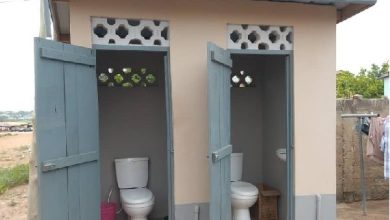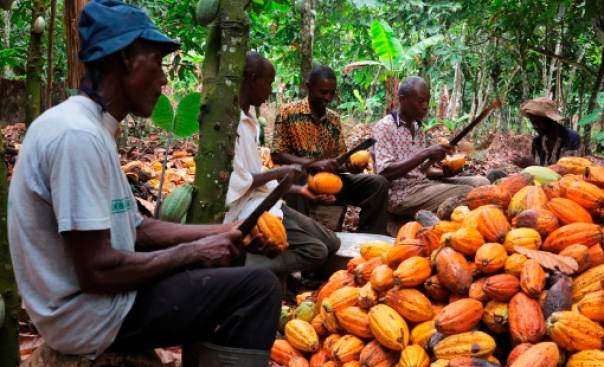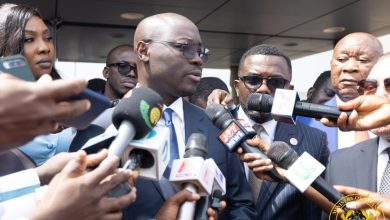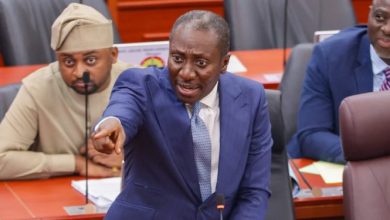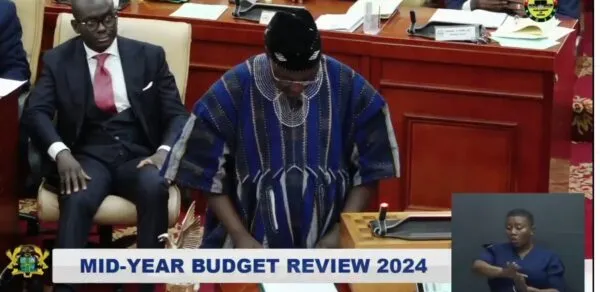
The Minister for Finance, Dr. Mohammed Amin Adam says Ghana’s economy is showing promising signs of recovery and growth.
The Minister addressed Parliament on Tuesday, July 23, 2024 emphasizing key achievements and outlining government’s plans for the remainder of the year.
Dr. Adam began his address by acknowledging the global economic challenges but expressed confidence in Ghana’s economic trajectory. One of the most notable achievements mentioned in the review is the increase in international reserves. The Minister announced that Ghana’s international reserves have improved significantly, now standing at 3.1 months of import cover. This marks a substantial recovery and provides a stronger buffer against external shocks.
“Gross International Reserves reached 3.1 months of import as at end June 2024 against 2.5 months of imports in the same period last year.
“Mr. Speaker, it is evident that we are on the right trajectory. Things are looking better than we anticipated. The choices we have made and the policies we are implementing are yielding results. We have reversed the negative trends, all the indicators are looking better,” he said.
The Minister attributed this achievement to effective fiscal management and strategic negotiations with international partners. Successful negotiations with the International Monetary Fund (IMF) have resulted in crucial support, including a $600 million tranche from the IMF and a $2.8 billion debt relief from the Paris Club and other creditors. This support has not only bolstered reserves but also contributed to stabilizing the economy.
Inflation, a key concern for many Ghanaians, has seen a notable decline. Inflation has dropped by 31 percentage points since 2022, and the government is committed to maintaining this downward trend. This improvement in inflation rates, coupled with a stabilization of the exchange rate, is expected to ease the cost of living for citizens.
Dr. Adam also highlighted the government’s significant investments in social programs and infrastructure. Over GH¢5.4 billion has been disbursed for various social programs, including LEAP, the School Feeding Programme, and the NHIS. Additionally, nearly GH¢10 billion has been invested in the road sector since January 2024.
Education remains a priority for government, with substantial funding allocated to the Free SHS programme. In the first half of 2024, GH¢1.5 billion was invested in the Free SHS programme, ensuring that the youth have access to quality education. This investment is part of the broader strategy to build a skilled and educated workforce for the future.
The Finance Minister did not shy away from discussing the challenges and risks ahead. He cautioned that while significant progress has been made, the country must remain vigilant. Key economic risks, including fluctuating commodity prices and global economic uncertainties, could impact Ghana’s growth trajectory. Nevertheless, he expressed optimism that with continued fiscal discipline and strategic planning, Ghana would navigate these challenges effectively.

